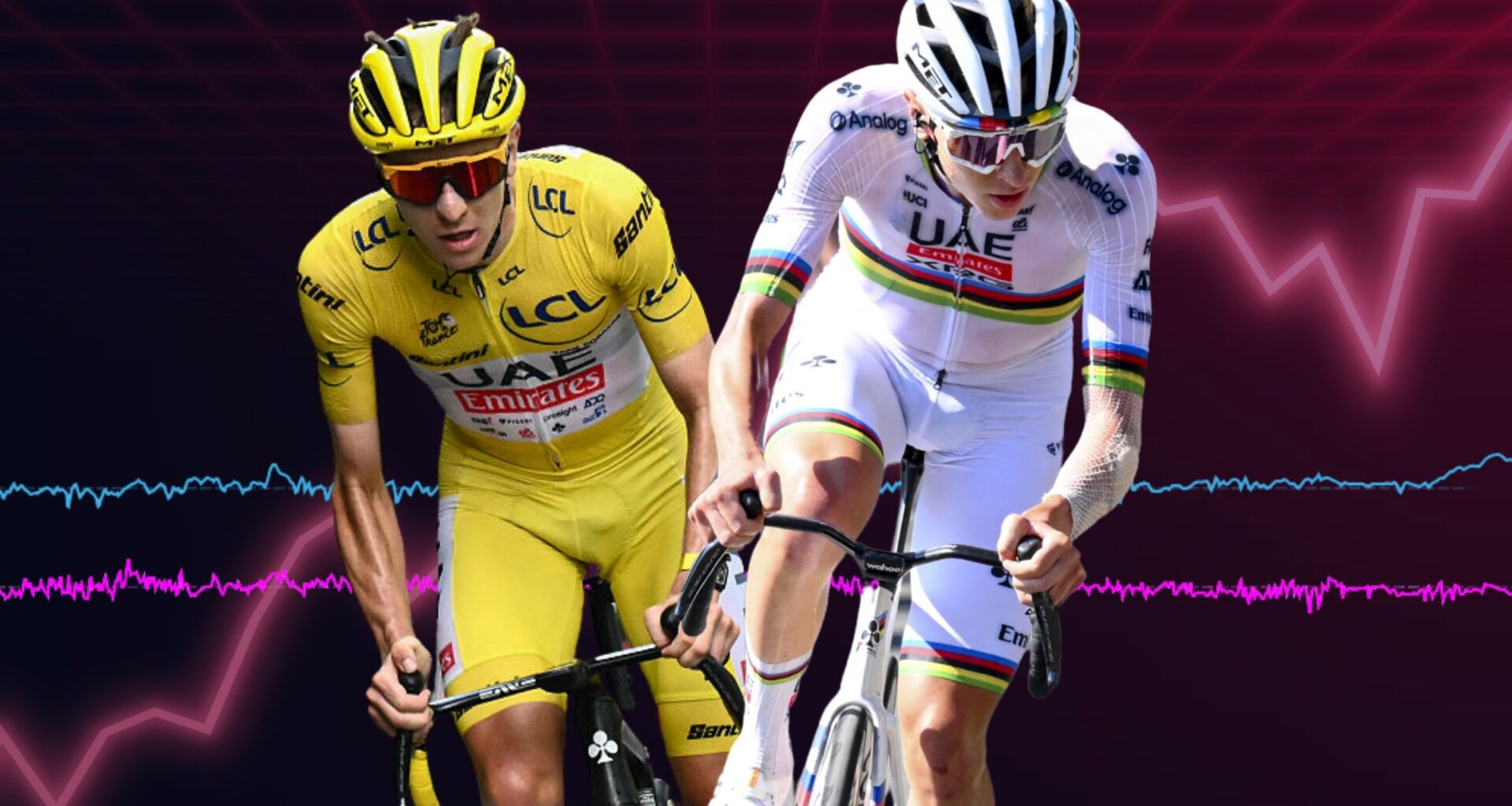Updated November 19, 2025 08:41AM
Eddy Merckx better stop reading now.
A fresh analysis of Tadej Pogačar’s recent Tour de France climbing performances reconfirms the Slovenian super-cyclist as a physiological GOAT, and highlights the wild extremes of the sport’s modern era.
Data published by the Journal of Science and Cycling this week put Pogačar’s VO2 Max in the high 90s, one of the highest on record.
Beyond that, it reconfirmed what we already know – that if you want to beat Pogi up a hill, you gotta hit close to 7w/kg. That’s a power-to-weight ratio former GC superstars like Chris Froome and Alberto Contador could have only dreamed of just 10 years ago.
The new study by Norwegian professor Ole Kristian Berg reverse engineers the key metrics underlying Pogačar’s Tour de France highlights reel.
The paper combines publicly available climbing times from Strava and best-guesses at body mass and bike weight.
Estimates of power, power-to-weight, and VO2 Max – an athlete’s maximum rate of oxygen uptake, and a gold standard measure of fitness – were then calculated for six summit finishes from the past two Tours de France.
And of course, the big hitters were included in the report.
Pogačar’s record-setting ascent of the Plateau de Beilles in 2024, and his pulverization of Jonas Vingegaard this summer in his Pyrénéan rout of the Hautacam and Peyragudes were included.
Yes, Pogačar is a physiological freak
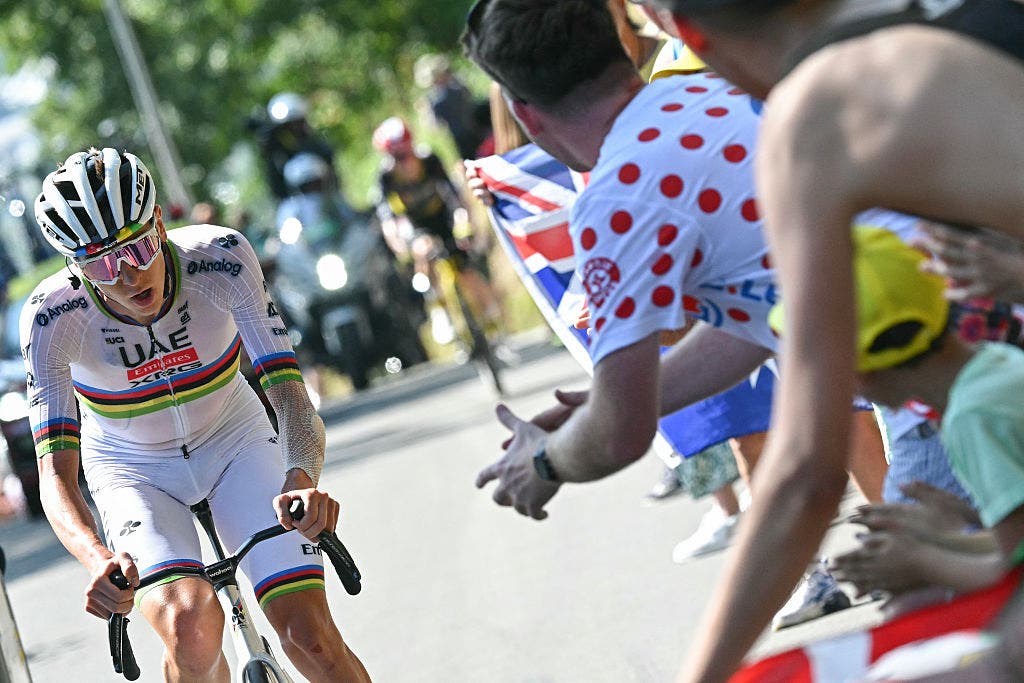 The new study put fresh light on Pogačar’s Tour de France domination. (Photo: LOIC VENANCE/AFP via Getty Images)
The new study put fresh light on Pogačar’s Tour de France domination. (Photo: LOIC VENANCE/AFP via Getty Images)
The main takeaways from the study?
As Velo already showed in repeat power analyses, Pogačar can push in excess of 6.7w/kg for close to 40 minutes, even when fatigued. When he’s relatively “fresh,” like in this summer’s Peyragudes mountain time trial, he can hit 7w/kg for close to 20 minutes.
The study also calculated that Pogačar’s climbing times would require a VO2 Max of ~80mL/kg/min.
This was then extrapolated out to credit Team UAE’s talismanic leader with an absolute VO2 Max in the high 90s – potentially as high as 96mL/kg/min.
And this was no back of a cigarette packet calculation. The author based the workings on an assumption of Pogačar’s critical power – a number which equates to a repeatable 40-minute effort – and the established theory that “CP” occurs at 85-90 percent of VO2 Max.
[On mobile? Rotate mobile to landscape – ed]
Yes, there are a lot of “calculations,” “assumptions,” and missing pieces in these models. The impact of wind speeds and drafting is among the many minor loopholes in the equations.
Nonetheless, the results are in line with what we already suspected, and the report was reviewed by acclaimed WorldTour physiologist Peter Leo.
So yes, this paper is legit.
Pogačar’s VO2 Max is close to recorded bests
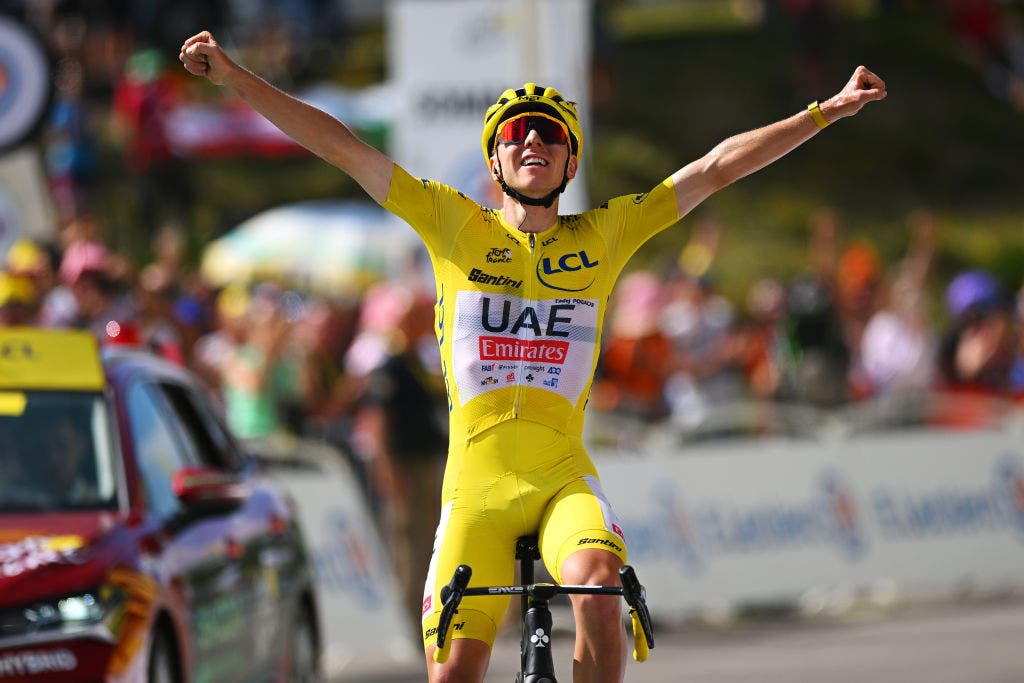 The new study used Pogačar’s performance on Plateau de Beille as the basis of its VO2 Max calculation. (Photo: Dario Belingheri/Getty Images)
The new study used Pogačar’s performance on Plateau de Beille as the basis of its VO2 Max calculation. (Photo: Dario Belingheri/Getty Images)
So, what does a VO2 Max in the high 90s mean?
In short, that Pogačar is a physiological freak with a cardiorespiratory prowess up there with the very best … ever.
As former Red Bull and now Tudor Pro Cycling sport scientist Tim Podlogar recently said, “Pogačar’s physiology is completely unimaginable to me.”
For comparison, the highest recorded VO2 Max is 97.5mL/kg/min, set by junior racer Oscar Svendsen in 2012. More recently, tests in 2019 revealed Norwegian cyclist Oskar Svendsen was at 96.7mL/kg/min.
As a little Tour de France context, former yellow jersey dominator Froome’s peak VO2 Max was calculated at 88.2mL/kg/min. U.S. legend Greg LeMond’s was reportedly in the mid-90s.
The modern peloton is kilometers ahead of the Froome era
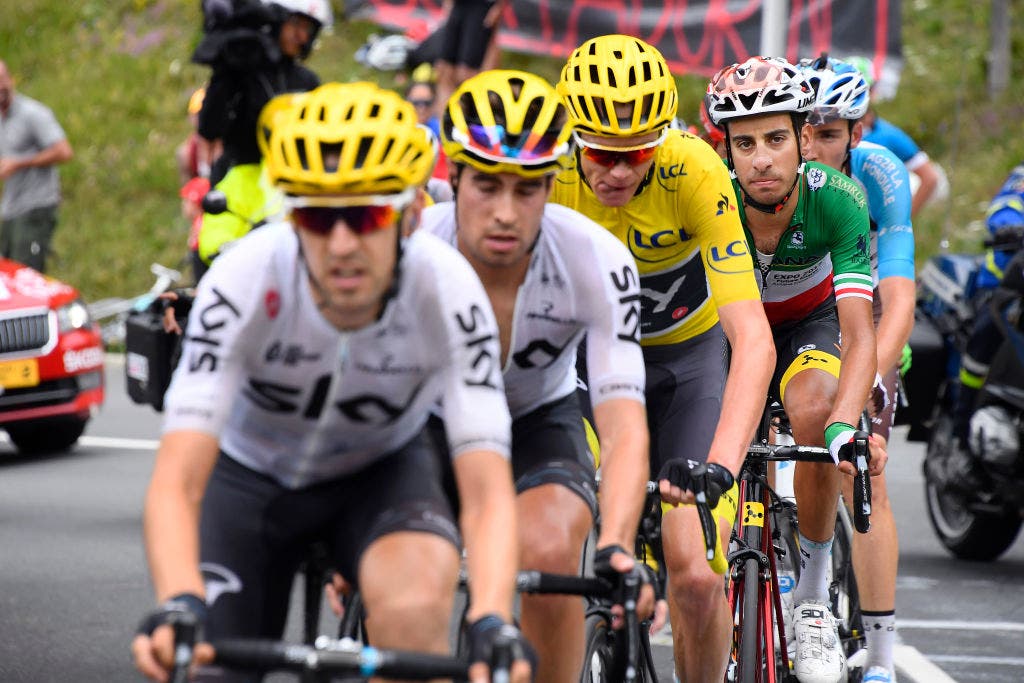 Performance figures from 2025 blow away those from the Froome era. (Photo: Tim de Waele/Corbis via Getty Images)
Performance figures from 2025 blow away those from the Froome era. (Photo: Tim de Waele/Corbis via Getty Images)
This report affirms Pogačar’s status in cycling’s Hall of Fame. If four Tour de France titles, two world rainbow jerseys, and millions of monuments wasn’t already enough, that is.
But it also makes bold the wild progression of modern cycling.
Pogačar is the poster boy of a sport of $50 million super-teams, F1 technology, and a dangerous obsession with data, but his rivals aren’t always so far behind.
More to the point, riders like Vingeaard and Remco Evenepoel are several clicks ahead of the greats of the last decade. Our own power analyses have estimated the GC superstars of the modern era would have torn the foundations out of Team Sky’s “Fortress Froome.”
Back when Froome was at his grand tour-gobbling best, the repeatable 30+ minute norm for elite climbers was seen as 6.0-6.2w/kg.
WorldTour trainers told Velo this week that they hold 6.6-6.8w/kg as the multi-climb benchmark of the Pogačar era. That’s a difference of ~40 watts for an average-size Tour de France topper.
Pogačar sets the tone for an accelerated modern sport
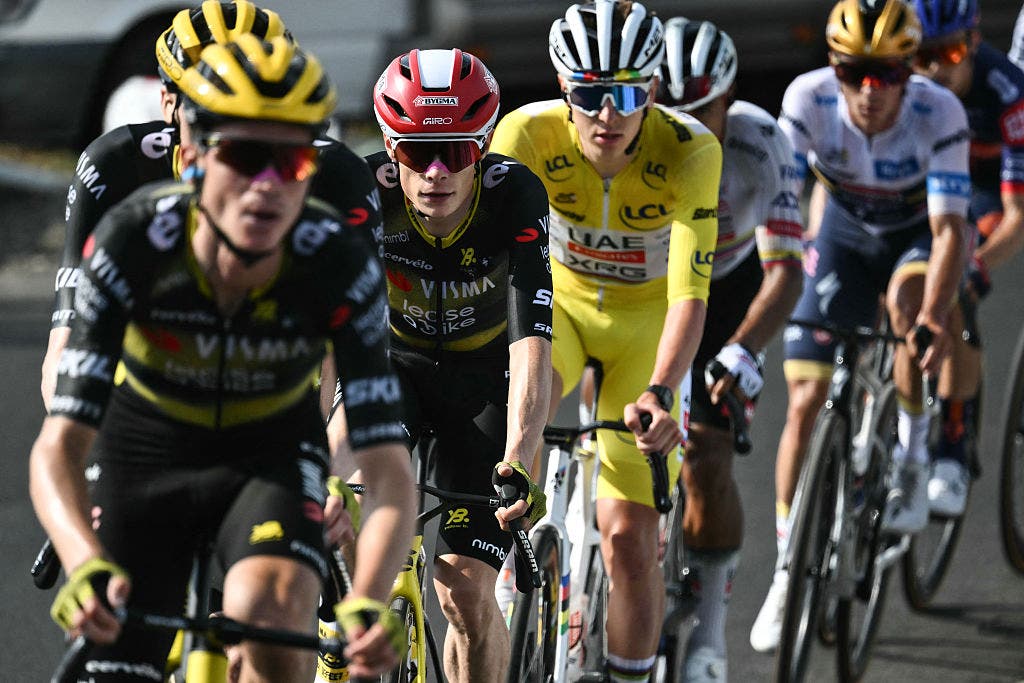 Pogačar is setting the tone, but the entire pro peloton is reaching a new level of performance. (Photo: MARCO BERTORELLO/AFP via Getty Images)
Pogačar is setting the tone, but the entire pro peloton is reaching a new level of performance. (Photo: MARCO BERTORELLO/AFP via Getty Images)
The post-pandemic performance progression isn’t only demonstrated in the stadia of the Alps and Pyrénées.
Exponential advancements in tech, nutrition, and training have propelled the peloton to a mind-boggling level, all through the season.
Results database Pro Cycling Stats reports that the 2025 WorldTour season was the fastest on record. A 42.913kph average speed for the year embarrasses the 40-point-something kph of the 2010s.
And while speeds must be taken with a pinch of aerodynamic salt, the underlying performances prove the point.
Quinn Simmons averaged 350 watts for close to six hours last month at Il Lombardia and didn’t even hit the podium. Similarly, Evenepoel recently told Het Laatste Nieuws he pushed one-third more power at October’s “Race of the Falling Leaves” than what Gianni Moscon managed in 2017.
“Gianni told me that eight years ago he finished third in Lombardy averaging around 200 watts,” Evenepoel told HLN. “This year, I needed 290 to finish second.”
So long 7w/kg?
 How long before cycling surpasses 7w/kg? (Photo: Dario Belingheri/Getty Images)
How long before cycling surpasses 7w/kg? (Photo: Dario Belingheri/Getty Images)
The question on everyone’s minds: How long can the momentum remain in cycling’s high-speed evolution?
Pogačar saw huge gains in 2024 and 2025 courtesy of a full training overhaul by UAE Emirates-XRG staffer Javier Sola, but at 27, he’s not slowing down.
And elsewhere, rivals like Evenepoel and Vingegaard will maintain, if not bridge the gap. Escalating team budgets and a sport reaching rocket science will drag the whole peloton toward Pogačar’s benchmarks.
Our bet?
The 7w/kg barrier won’t stay upright too much longer.
